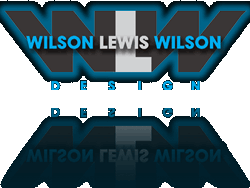Professional Standards of Practice
Wilson-Lewis-Wilson Design subscribes to the following professional standards of practice developed for creative firms and their clients by Creative Business.
Consultation. Except in unusual circumstances, a creative firm should make one free, introductory visit to a prospective client. Subsequent calls should be part of a billable assignment, unless both parties agree otherwise.
Speculative work. Client organizations should not ask for work to be done "on speculation" -- i.e., to have the assignment contingent on approval of the work. Speculative work is subject to widespread abuse, increases prices, and is otherwise unprofessional. (See Why We Don't Make Speculative Presentations.)
Estimates & proposals. When sufficient information is provided, creative firms are expected to prepare a written estimate or proposal of assignment schedule, costs, and terms and conditions. When sufficient detailed information is not provided, it is the obligation of the creative firm to say so. If information is unavailable, pricing should be based on an hourly labor rate with frequent reviews of time expended. No assignment should be started without a signed acceptance of the estimate or proposal, or a purchase order authorization.
Billing. The client organization has the right to expect that the price on an estimate or proposal, plus additional expenses and taxes, will be the invoiced price unless otherwise appended, verbally or in writing, before invoicing.
Confidentiality. The client organization should expect that any information or material provided will be treated confidentially, and that all reasonable efforts will be taken to safeguard it. If requested, the creative firm should willingly sign a nondisclosure agreement.
Conflict of interest. Creative firms engaged in advertising and public relations should not work for two clients who are directly competitive. It is acceptable for firms engaged in other types of assignments to work with competitive clients, but not simultaneously. Where there is concern about conflict of interest, it is the responsibility of the creative firm to ask the first client if it is permissible to also accept the work of the second.
Working arrangements. Unless otherwise stipulated, every assignment is considered to comprise two equal sections: product specifics, market objectives, budget and approvals are the responsibility of the client organization; conceptual approaches, creativity, management, and production expertise are the responsibility of the creative firm.
Submissions. It is the responsibility of the creative firm to recommend what, in its professional opinion, is the best way to meet the client's objectives. Similarly, it is its responsibility to follow the direction, input, criticisms, and comments of the client organization closely.
Ownership. The final output of the creative firm becomes, after payment, the property of the client organization except in the case of illustration or photography, or where otherwise indicated. However, all preparatory materials (sketches, concepts not utilized, artwork, mechanical files, computer files, etc.) remain the property of the creative firm.
Approvals. It is the sole responsibility of the client organization to review all material before production and to attest to its accuracy.
Non use. In accordance with accepted professional services practice, the client organization is financially obligated for work done, whether or not it is utilized. In the event of dissatisfaction, the creative firm should resign at the earliest possible date and make an effort to find another firm to continue.
For More Information
If you would like to receive information about products and services available from Wilson-Lewis-Wilson Design, please use our convenient Contact form, or:
phone: 813.960.9318
fax: 1.813.388.4575
email: info@wlwdesign.com
snail mail:
Wilson-Lewis-Wilson Design, 11501 N. Grady Ave., Tampa, FL 33618
